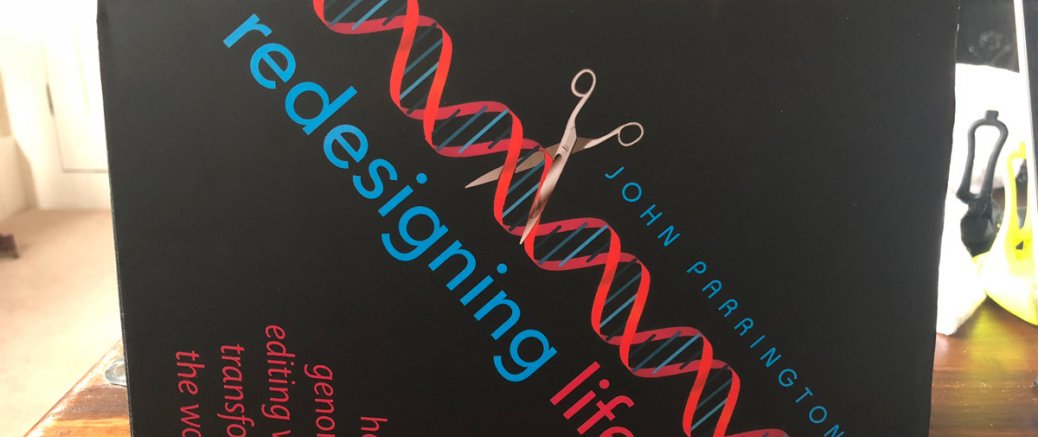I finished my first book! John Parrington has written a well-researched book on how the success of genome-engineering will affect not only our nature but the whole of our society.
I was a bit skeptical reading a book, which on the outset looks like it's describing the sort of work I do my day job. Genome engineering, editing cells, curing cancer, I mean, yeah I do that every day, right?
Turns out John Parrington, who's a professor in molecular and cellular pharmacology at Oxford, knows his stuff. The book is an incredible well researched tour through the forefront of biomedical research, touching on many of the mayor discoveries of the last few years: optogenetics, iPSCs, and of course genome-editing techniques such as CRISPR-Cas9 and TALENs. Using their implication for both human health and the broader society as a reference point, he whirls all these new discoveries together into a coherent and interesting story, which is quiet an achievement.
The book first chapters lay out the ground work, making sure readers all know what RNA and DNA is, and also makes the point that changing DNA is something we've done for thousands of years through selective breeding of animal. From there the book moves fast into novel techniques - I am not sure how easy it is for non-specialists to actually follow the fast pace - but if you have some biological training it is perfect. There are plenty of anecdotes and historical references, which keep the background sections interesting: who knew that Mendel actually started his work on genetics in mice, but was forced to move to peas as the local bishop was outraged that a monk - who had taken the vow of chastity - was encouraging rodent sex? Not me, that's for sure, but I glad I do now.
The remaining chapters mainly touch on breakthroughs in biomedical research, and then describes which dilemmas or questions these new technologies bring to us as a society. The main subjects are optogenetics and their role in elucidating how our brain works and how diseases like Alzheimer's develop; and how genome-engineering using TALENS or CRISPR-Cas9 will be used in cancer treatment and in agriculture to create novel strains of food (in both animals and crops). The science behind the findings that Parrington describe is often unrelated, but is weaved nicely together into a coherent story, making each chapter an easy but still educational read. So are the dilemmas described: could ontogenetic techniques used to elucidate the workings of the brain also be used as a form of "soma" to control an unruly population? Could genome engineering and iPSCs be used to clone one self or create "better" humans? By juxtaposing the science with the societal implications, each chapter makes one wonder and think more deeply about where we are going.
The big question of the book is this: how will these new technologies affect us as a society? The first 9 chapters all lead up to the final 10th and concluding chapter: "How will genome editing transform the world?" as it says on the bookcover. While the book touche on a plethora of these questions, and bring to the front a number of complications they might bring, I still found this chapter lacking: I wish John Parrington had let more of his own views come through here, but instead we are left with quotes from other scientists debating the rights and wrongs of the many interesting subjects he has described. Basically, we are told that biology is complex and there are dangers ahead. I completely agree with that, but it would have been very interesting to hear the authors take on how we should then approach using these technologies. There seem to be a plead for more international oversight, especially on the subject of germline engineering, but thats about it.
All in all I found this a very entertaining and thorough book, which taught me a lot about a subject I thought I knew well already. The book is filled with references and even though it's over a year old - a long time in this fast moving field - it's still highly relevant for people interested in how genome engineering will affect the world.
